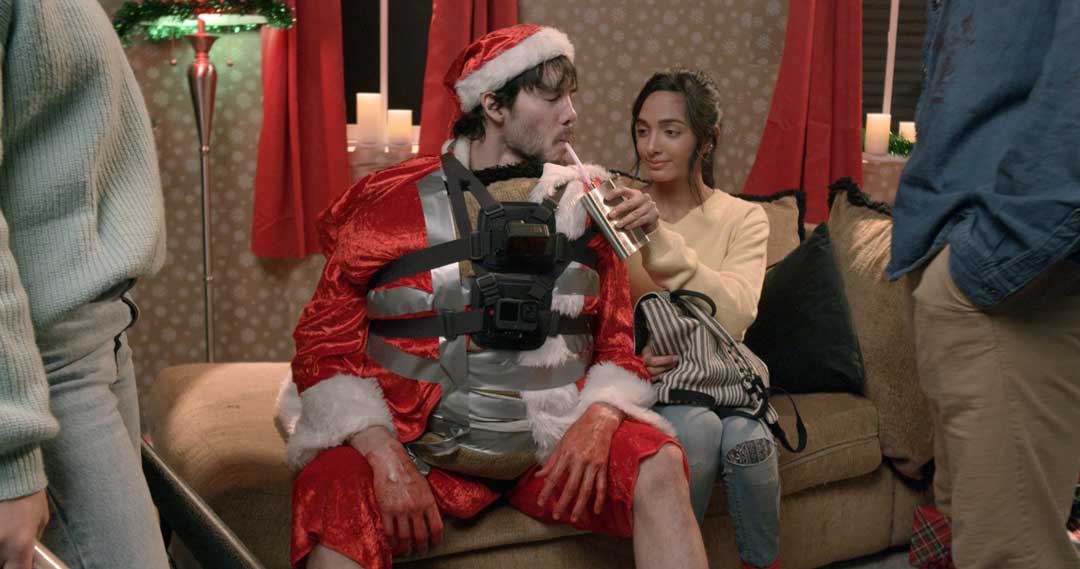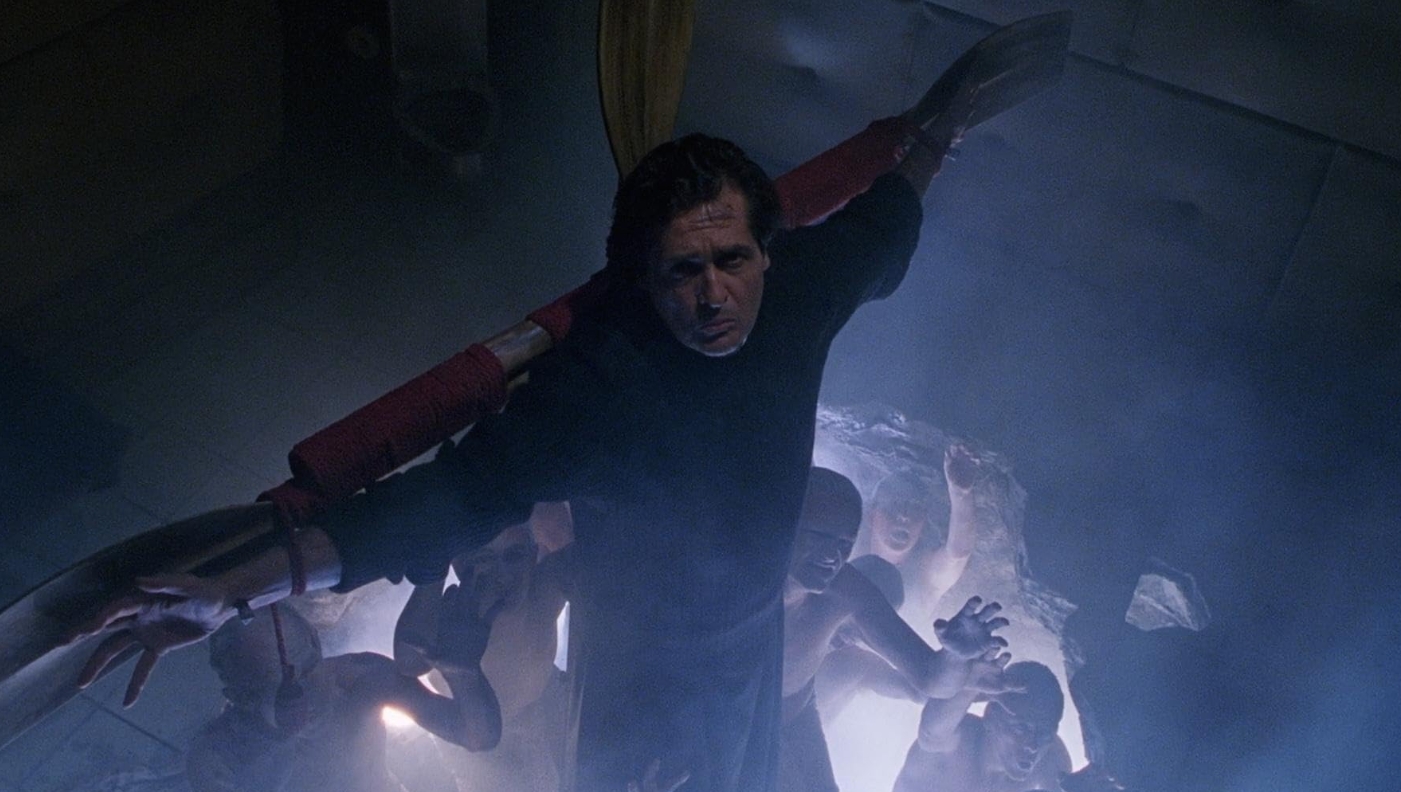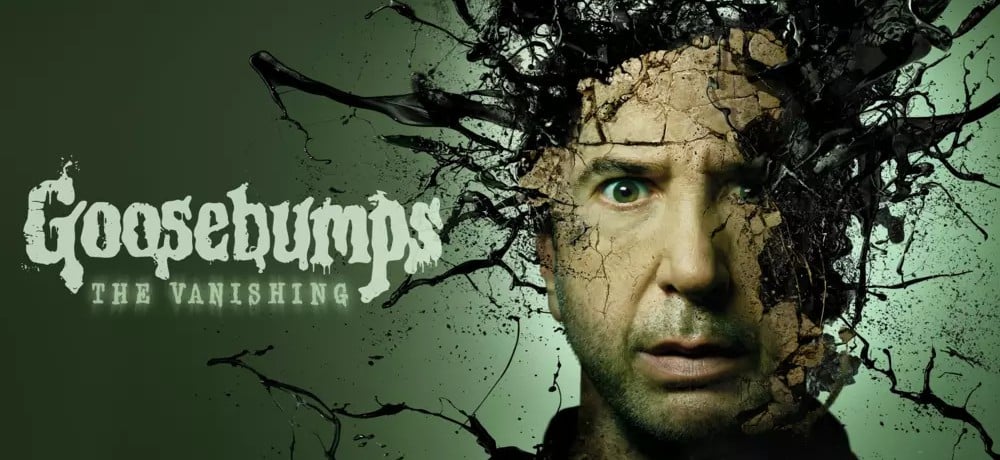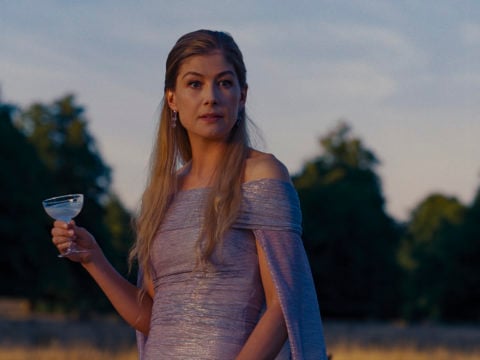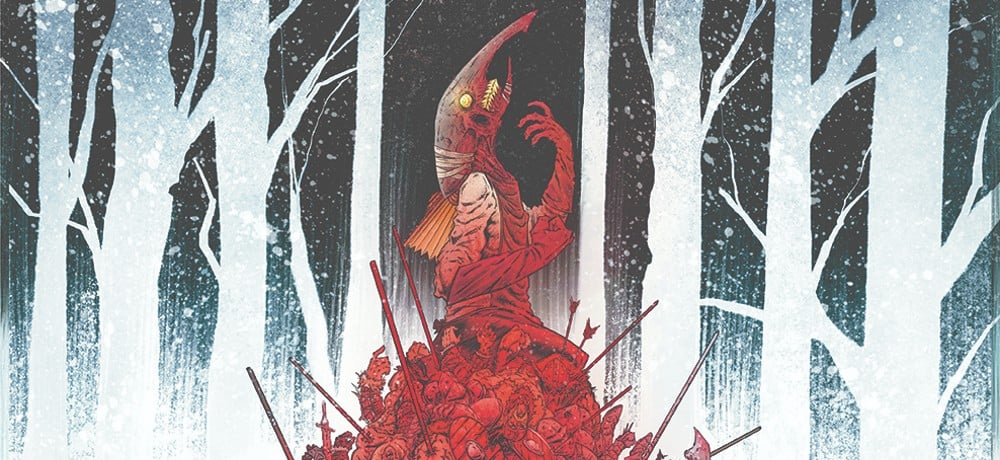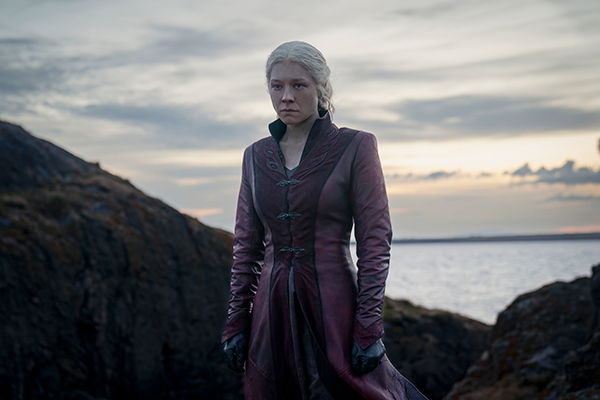The third original Hellboy Universe audiobook has just been released. Titled Hellboy and the B.P.R.D: The Goddess of Manhattan, the tale from GraphicAudio is written by bestselling author Christopher Golden and Thomas E. Sniegoski. For Hellboy newcomers, the B.P.R.D. is the Bureau for Paranormal Research and Defense.
Penned exclusively for GraphicAudio and produced with a full cast of actors, sound effects, and cinematic music, this audiobook provides an immersive story set in the Hellboy Universe created by legendary cartoonist Mike Mignola. Accompanied by cover artwork by Mignola and award-winning colorist Dave Stewart, Hellboy and the B.P.R.D: The Goddess of Manhattan will connect Hellboy’s adventure with Anastasia in Brazil in Hellboy: A Plague of Wasps and Lobster Johnson’s mysterious 1930s caper Lobster Johnson: The Proteus Club.
Hellboy and the BPRD: The Goddess of Manhattan follows Hellboy, Liz Sherman, and Abe Sapien as they help a strange community of bizarre humans that has been living in secret beneath Manhattan for more than 60 years. Someone who claims to be the ancient goddess Sem-Karul has been stalking them and murdering them one by one. With aid from the now elderly Cynthia Tynan, Hellboy and the BPRD must face the Goddess of Manhattan and the monsters who serve her.
Christopher Golden is a New York Times bestselling author and Bram Stoker Award winner. His books include The Myth Hunters, Wildwood Road and Of Saints and Shadows. His new novel, The Night Birds, will be published in 2025.
He recently fielded a few questions from Wicked Horror about working in the Hellboy universe.
WH: Tell us a little about stepping into the Hellboy world. What did you look for among the characters and the world’s parameters to craft a new tale?
CG: I’ve been working in the world of Hellboy for a very long time, almost from the beginning. When I’m coming up with ideas to explore, I always want it to be something that will force the characters to overcome their fear, make hard choices, and question their own purpose. And, of course, I want Hellboy and company to encounter things that are terrifying and fascinating. I always prefer Hellboy stories that are about him approaching his work like a blue collar job, and discovering that what he faces is deeply evil, and forces him to reckon with the dark corners of the world and the fact that he was born from one of them. Usually I love to look into ancient myth and legend and craft something in which ancient evil is being reborn or bleeding back into the world instead of staying in the past. It says something about our world and our place in it–something Hellboy recognizes about the ephemeral nature of human life. Can you tell I love this stuff?
WH: What was your first encounter with Hellboy and what was your first impression?
CG: I read the first issue in preparation for an interview I did with Mike Mignola for a magazine called Flux out of New York. Hellboy had everything I loved: monsters, mythology, history, mystery, and the kind of hard-boiled noir leading man who stood outside of polite society. Once upon a time, Robert Mitchum or Burt Lancaster would have made incredible screen Hellboys.
WH: Did you have a favorite Hellboy story or film?
CG: It’s really difficult to pick one, though I tend to like the shorter, creepier stories the best. The Corpse. The Iron Shoes. Pancakes, of course. The Wolves of St. August. I’m also partial to The Crooked Man, which shouldn’t come as a shock, and The Third Wish.
WH: In your own novels, you’ve played with many mythic elements. What did you look for in Hellboy thematically and mythically to explore?
CG: I come at Hellboy stories the same way I do my personal work. If there’s a Venn diagram of the kinds of stories I love, Hellboy is always right in the center of that diagram. I have a kind of personal mythology, which is fiction but feels right and real to me, in which there have been several ages of human civilization that rose and fell and were basically erased from the world, and that there were evils and gods and dangers that inspired our ancient history, but sprang from earlier ages and influenced the creation of those archetypes. It’s crazy, but it dovetails very nicely with tales of Hyperborea, as well as the creation of the world Tom Sniegoski and I are exploring in Frankenstein: New World, which is the latest age of civilization in the Mignolaverse.
WH: What’s it like translating such a visual universe into an audio drama. What challenges did that present, and what opportunities opened up on that front?
CG: I absolutely love working in these audio formats. I had my first taste of it years ago when Amber Benson and I created and wrote Ghosts of Albion, an online animated series from the BBC. We learned late in the process that it had to be able to be listened to on BBC radio, and so had to at least mostly work in audio only. That was a challenge, but exciting. Then we wrote an episode for a BBC audio drama called The Man in Black and we’ve done other big audio projects together. So I’ve had an incredible time on all of these things, but most especially with these three audio adventures I’ve written (and this third one, co-written with Tom) for Graphic Audio. Their format is incredibly immersive, the sound is so layered, and working with the team there has been such a pleasure. Hellboy stories work great in audio. And the Lobster Johnson one worked best of all. So damn fun!



